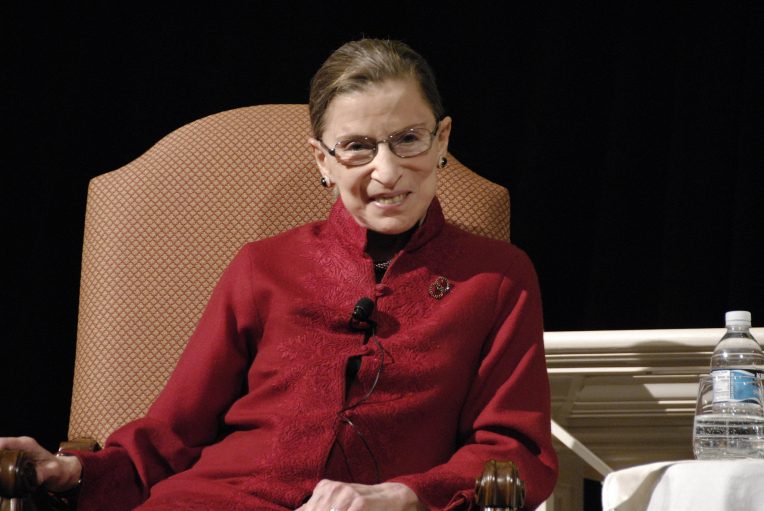As Ruth Bader Ginsburg lies in state at the United States’ Capitol—the first time a woman has done so—Illinois State University Department of Politics and Government Professor Dr. Meghan Leonard says the death of the longtime Supreme Court Justice on September 18 is a reminder of both the strides made and steps still needed to take in the fight for equality.
“For the entirety of her life, she was first for a lot of things,” said Leonard, who teaches courses on judicial process, judicial decision making, and constitutional law at the University. “But if we are still hitting gender firsts, we still have a lot of progress to make.”
Ginsburg spent her 27 years on the bench of the nation’s highest court fighting for social justice, for gender equality, and for underrepresented groups. Nominated in August 1993 by President Bill Clinton, she became just the second woman to earn a seat, behind Sandra Day O’Connor. Ginsburg was the first Jewish woman ever confirmed.
She has long been a leader in ending sex discrimination. She authored the court’s 1996 United States v. Virginia opinion, which ended the Virginia Military Institute’s male-only admissions policy. She also wrote the dissent in the 2007 Ledbetter v. Goodyear case, which ultimately led to the Lilly Ledbetter Fair Pay Act, making it easier for employees to win gender-based wage discrimination claims.
Leonard said much of her legacy, from a judicial standpoint, will revolve around her dissenting opinions, including a strong disagreement of the Supreme Court’s 2013 decision to invalidate part of the Voting Rights Act.
“Just one justice can’t really change the nature of the court, but she voted often times in the dissenting opinion and voted for creating equal systems,” said Leonard,
Ginsburg also ruled in favor of the passage of the 2015 landmark civil rights case that allowed for the legality of same-sex marriages in all 50 states.
The late Justice, who died at the age of 87 after a bout with pancreatic cancer, was a pioneer from the get-go. She was the highest-ranking female in her class at Cornell University, and then went on to become the first woman to ever to be published in both the Harvard Law Review and Columbia Law Review. She co-founded the Women’s Rights Project at the American Civil Liberties Union (ACLU) in 1972 and was appointed to the United States Court of Appeals for the District of Columbia Circuit by President Jimmy Carter in 1980.
A current law student penned an essay in Bustle saying how she was a master of finding common ground. The means meant just as much to her as the result. Leonard expanded on that and noted how Ginsburg had a famous professional relationship with Justice Antonin Scalia on the Supreme Court, even though the two had several differences in opinion.
“I think her personality was quiet,” Leonard said. “But she could really bring people together.”
Leonard said Ginsburg is an important person to learn from and hopes students she teaches understand the journey and practices she took to have such a significant influence on the government’s judicial branch.


